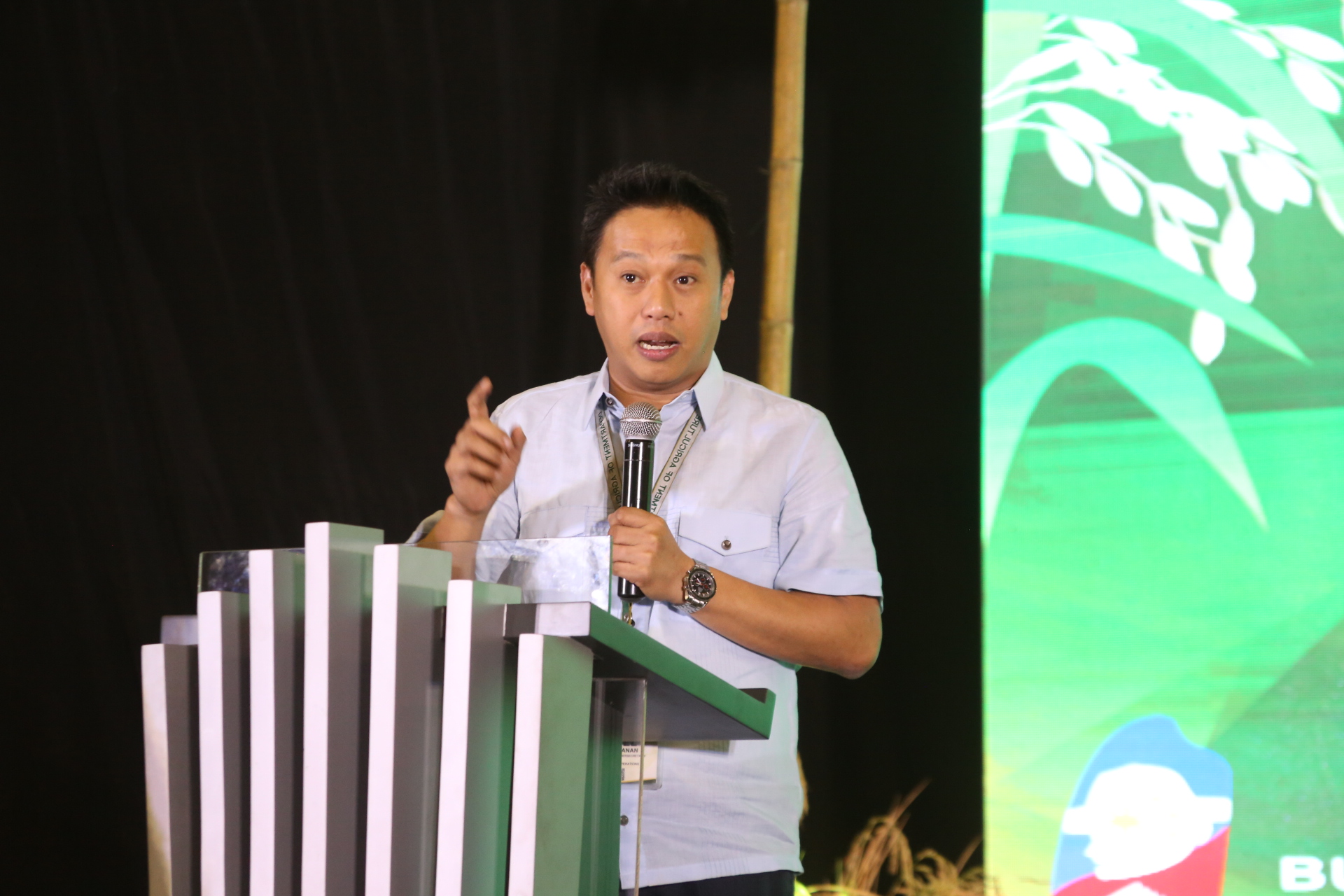
“One day all of us, we will be going out of the street not only to criticize each other but to inform, not only the Filipinos but the whole world, what we have done collectively and successfully to improve the lives of our farmers”
This was the message of Agriculture Undersecretary for Operations Ariel T. Cayanan during the closing ceremony of the 2019 National Rice Industry Stakeholders’ Conference on November 26, 2019 at the Iloilo Convention Center.
This year’s theme: “Empowering Rice Farmers Organizations Anchored on Value Chain System,” calls for a collaborative effort from the farmers, the local government units (LGUs), state universities and colleges (SUCs), the private sector, and other national government agencies.
The two-day conference, which convened stakeholders from all across the nation, ended with a commitment from industry stakeholders to work together on the implementation of program interventions towards attaining “Masaganang Ani at Mataas na Kita” under the Rice Tariffication Law.
“However, it must not stop with these. We must translate these recommendations and strategies into actions for effective implementation,” Cayanan added.
He said their recommendations should be doable, implementable and with short time
Cayanan stressed that the conference was able to unify various stakeholders and come up with appropriate policy recommendations that will be helpful in the drafting of Philippine Rice Industry Roadmap (PRR) 2040.
On the second day of the conference, farmers’ representatives presented the outputs of their workshop, which were submitted and collated by the Philippine Council for Agriculture and Fisheries (PCAF).
To make sure that the outputs of the seven plenary sessions will be included in the PRR 2040, Cayanan said the department will implement Bottom-Top and Top-Bottom approach.
He said their recommendations are vital and worthwhile to be processed. He said the rice farmers and rice experts will be invited in the process.
“We acknowledge the importance of the participation of the various stakeholders especially the role of local government in the drafting, crafting, implementing and monitoring of programs.
“We cannot rely on DA alone in addressing the problem. The department can initiate, but you as partners will be the implementers and champions to make it sustainable. Please continue to support us,” Cayanan said. ### (Kristel Merle, DA-AFID)














